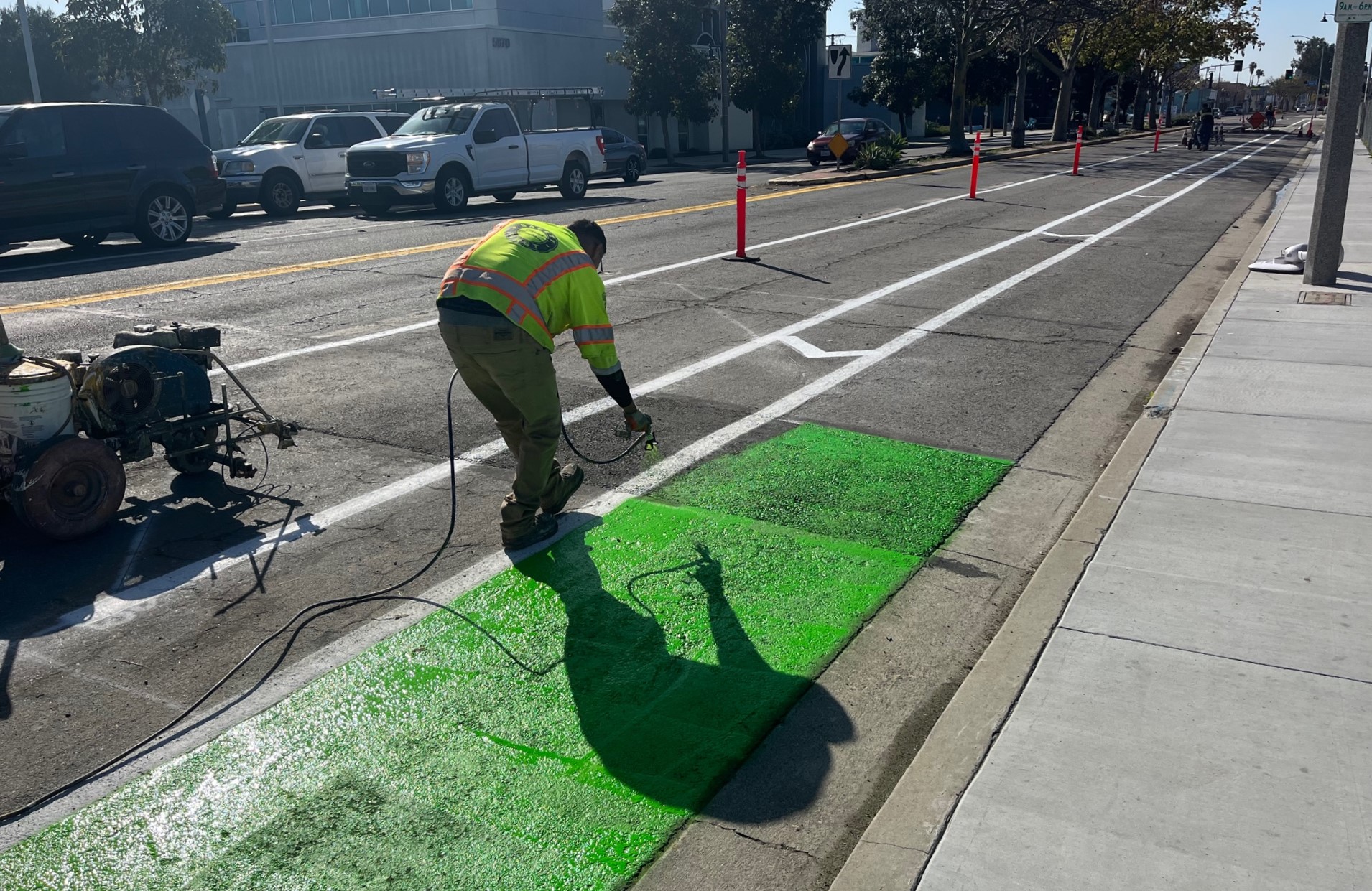L..A. City voters just passed Measure HLA, which city officials assert will cost billions to add bikeways, bus lanes, and sidewalks. One way for L.A. to get a jump on these improvements would be to learn from adjacent cities that are getting bike and bus improvements implemented for free - alongside new development. This practice won't do everything - but it's one inexpensive way to move toward multimodal streets.
At new development sites, L.A. could shift current resources that today go to widening streets - and instead upgrade for walkability, transit, and bikeability.
When a developer builds something, L.A. city typically requires that the project widen streets, adding new car lanes and/or new parking. The city's multimodal Mobility Plan (approved 2015) and new mitigation metrics (approved 2019) and a new no-widening ordinance (any day now) were supposed to curb the city's practice of requiring new development widen streets.
But widening never ended. The city continues widening alongside new development - from the Valley to downtown L.A. Metro stations to, right now in 2024, Hollywood to Historic Filipinotown.
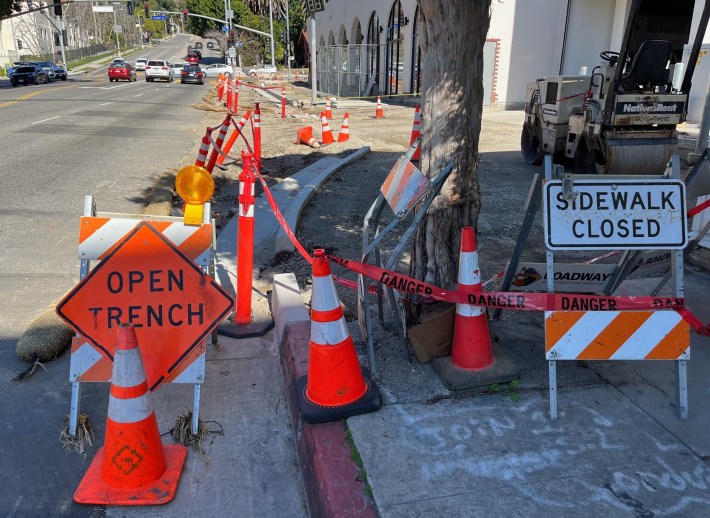
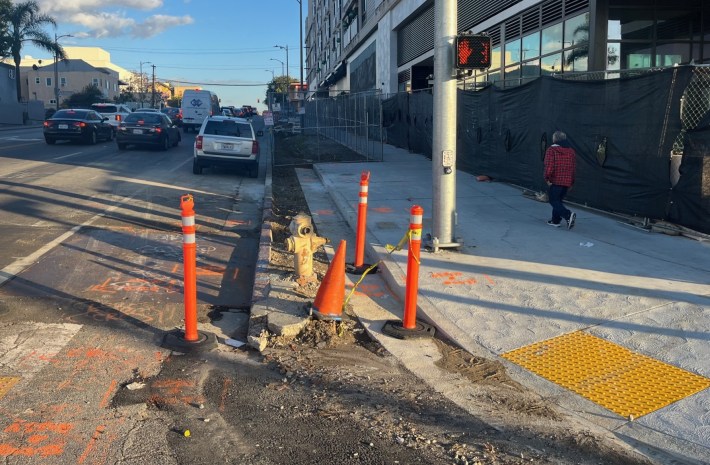
Many SBLA readers know that this widening makes L.A. streets more dangerous - especially for people on foot and on bike - and more expensive for the city to maintain in the long run. It worsens housing, pollution, traffic, and more.
Do other neighboring cities make their streets more dangerous alongside new development? Not really. At least three neighboring cities - Long Beach, Glendale and Burbank - are taking advantage of new development to add bike and bus improvements.
(To its credit, the city of L.A. has required new development add bike and bus improvements in one downtown location: the under-construction improvements on 7th Street, an exception that proves the rule.)
One place to look for plenty of inspiration is Long Beach. The city of Long Beach has done many different types of worthwhile bus and bike projects along new development.
In some locations, new Long Beach developments funded improvements to existing bike facilities.
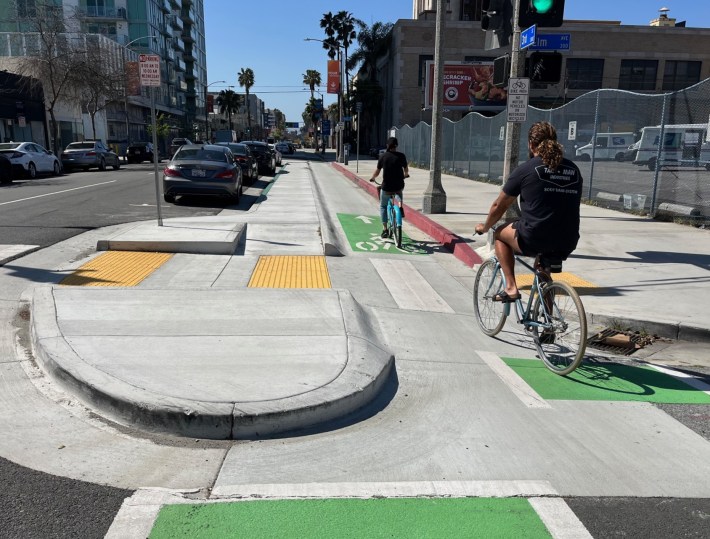
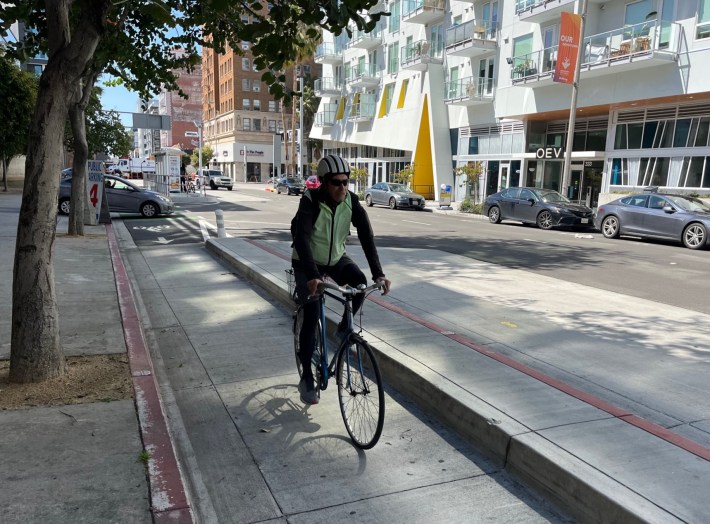
Long Beach has more than a half-dozen sites where new developments added "micro bikeways" at bus stops - generally creating a short stretch of protected bike lane behind a bus shelter, reducing bus/bike and bike/ped conflicts. These facilities help increase bus speeds, and make biking and walking safer. In some cases, the city removed on-street parking.
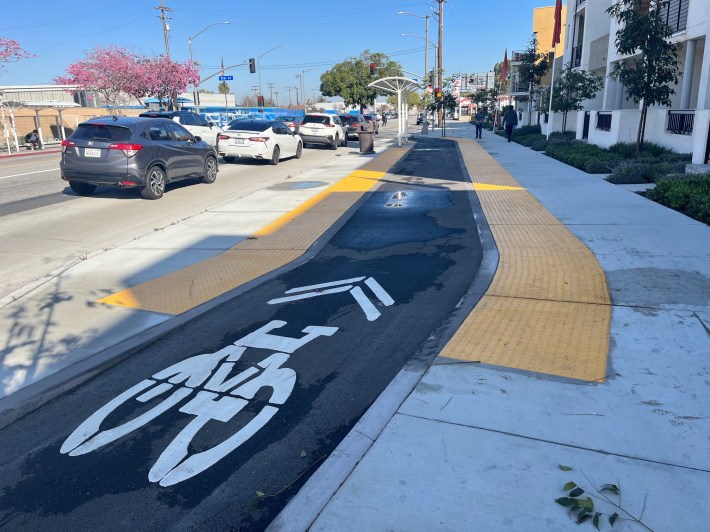
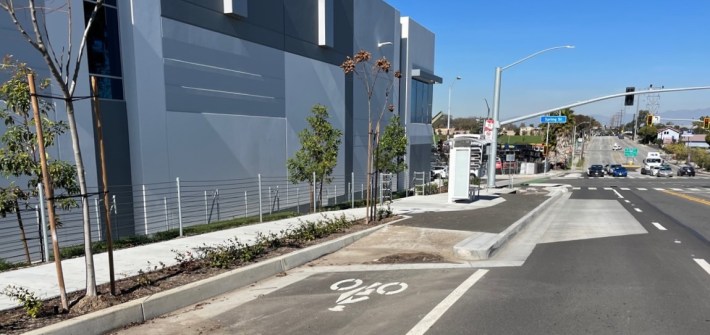
At a few larger development sites - mainly by the Long Beach Airport - new development is adding substantial bikeway mileage.
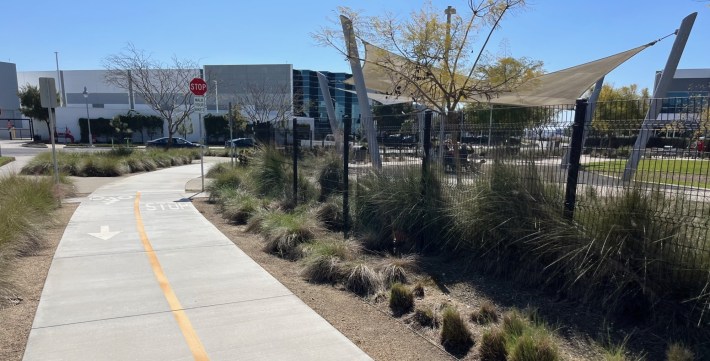
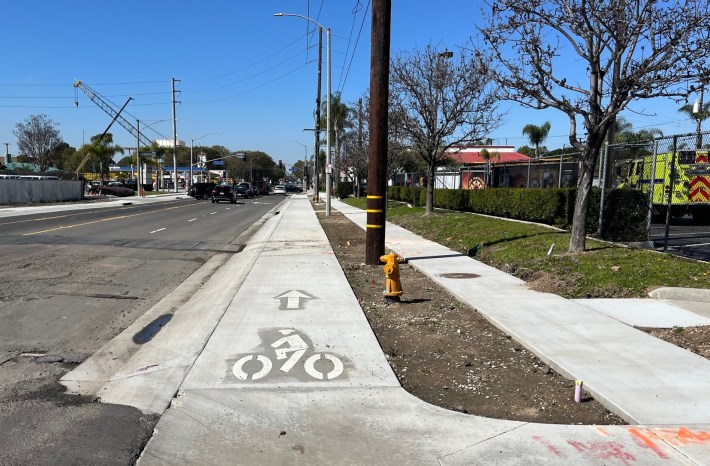
Long Beach is not alone. New development at Burbank Airport added protected bike lanes and upgraded bus stops.
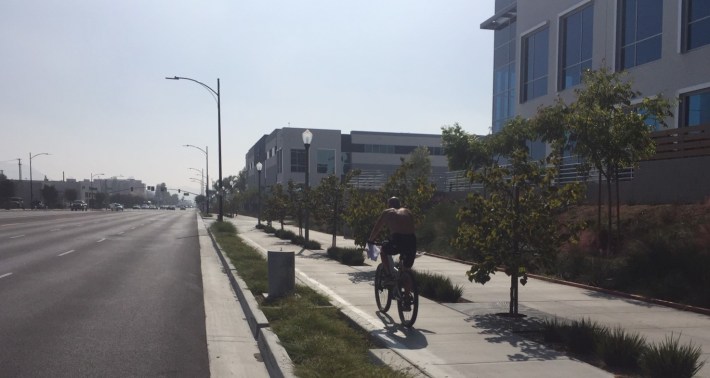
New housing in the city of Glendale added a block of landscaped curb-protected bike lane.
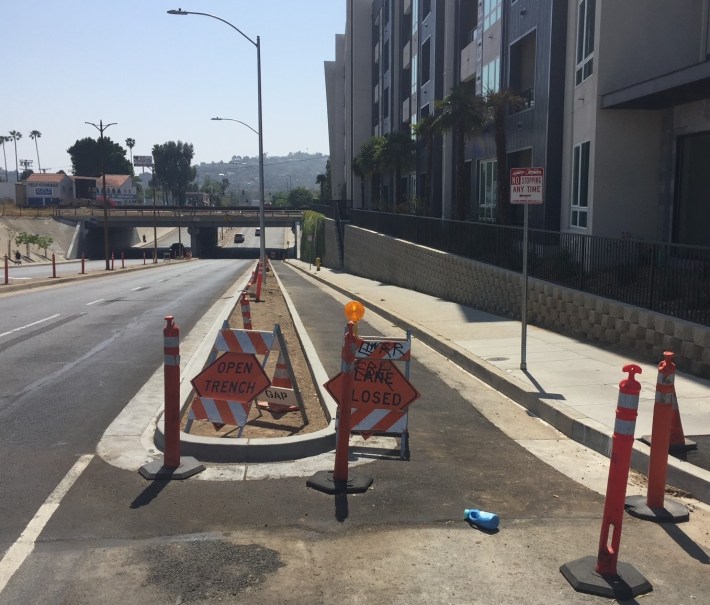
It's not just Southern California, Bay Area cities including Oakland and Emeryville do similar multimodal improvements along new development.
Development-funded bus and bike improvements are somewhat limited in scope. Many are relatively short. They won't implement the entire L.A. City Mobility Plan - but they can make sure that new Metro stations, new housing, new retail, etc. don't take L.A. in the opposite direction of its own approved plan.
Given how much discretion L.A. City Councilmembers have over development in their own districts, it looks like these sorts of multimodal improvements may need leadership from individual council offices. It would be great if city departments - mainly Public Works, Transportation and Planning - would take initiative to make small bus/bike improvements happen, but lately some departmental leadership has pushed against the Mobility Plan and against HLA.
Hopefully the political support demonstrated by Measure HLA's passage can shift various city processes toward supporting multimodal streets, including along new development.
